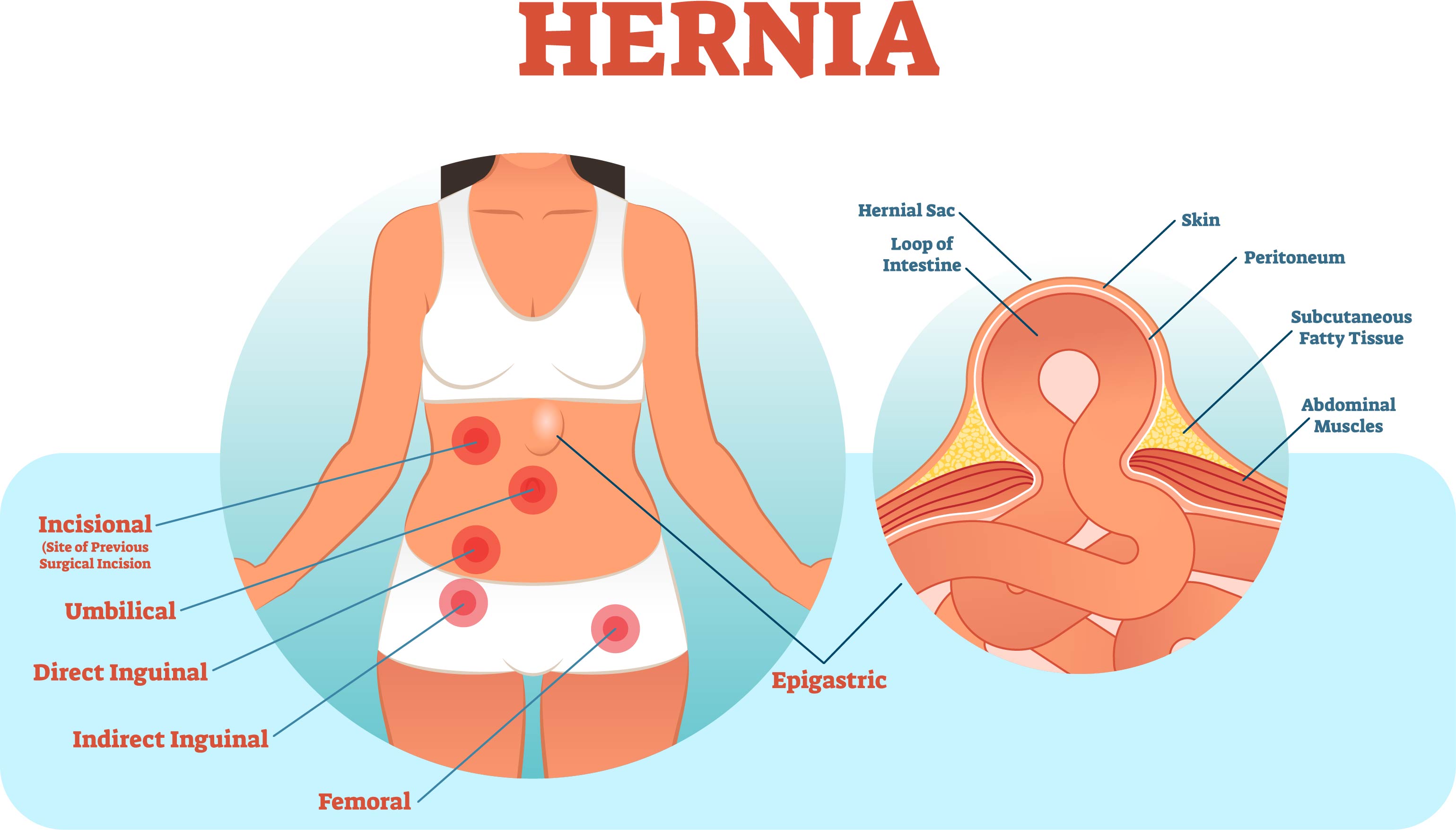
Dr. Zulick, tell us about hernias. Exactly how common are they?
Hernias are a common surgical problem. Over 20 million hernia repairs are performed each year worldwide. The description of a hernia is simple: a protrusion or bulge of tissue or organs through a defect in the abdominal wall. However, hernias can range from a very small and simple defect to a very large and complex one. A hernia is usually something that is easily noticed by a person as a visible or palpable bulge.
Where do most hernias manifest?
Hernias usually protrude through a natural defect in the abdominal wall. The most common type of hernia is a groin (also known as inguinal) hernia which occurs most often in men. Next most common is an umbilical or belly button hernia that develops where the umbilical cord passes through the abdominal wall during pregnancy. Normally, both of these types of natural defects in the abdominal wall close over after birth but, in some people, they remain slightly open and allow the development of a hernia.
Another type of hernia that probably should be mentioned just to distinguish it from the hernias I have talked about so far is a hiatal hernia. A hiatal hernia is a protrusion of the stomach through the diaphragm which is a sheetlike muscle that separates the chest from the abdomen. It is internal, not visible like an abdominal wall hernia. A hiatal hernia rarely causes problems and does not commonly require repair.

Would someone know if they had a hernia?
When a hernia develops, the type of tissue which protrudes and the size of the defect in the abdominal wall can vary a lot. Likewise, hernias can be insignificant or cause major problems. Sometimes hernias can be very painful, other times not cause any pain at all. It is probably true that hernias are more likely in people who do a lot of heavy work or straining. However, they can also develop in people who do not engage in that type of activity.
How does your general surgery team treat hernias?
Most people elect to have their hernia repaired either because of the pain it is causing or because of other health concerns. However, an individual who has a hernia and gets absolutely no pain from it may elect to simply watch and wait. This is especially true of very small hernias around the bellybutton which have a very low risk for subsequent problems.
Hernia repairs are done by general surgeons, like myself, who perform most types of abdominal surgery. Hernia repairs can be quite simple or very complex depending on the type of hernia, its location and the type of tissue that is protruding. Inguinal or groin hernias and umbilical hernias usually are quite simple to repair and the surgery can be done as an outpatient. Hernias that develop after other abdominal operations, called incisional hernias, tend to be more complex and often require a hospital stay. Most people can return to relatively normal activity within a couple of weeks after a groin or umbilical hernia repair. Larger or more complex hernias usually require a longer recovery period.
Dr. Lewis Zulick is the Chief of Surgery at Newark-Wayne Community Hospital and Clifton Springs Hospital & Clinic.